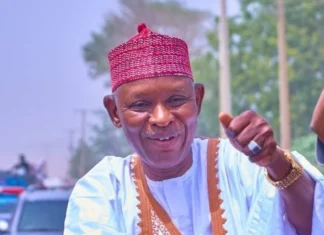The Imo State Governor, Hope Uzodinma, on Sunday vowed to quit politics rather than spill blood to win an election.
This is as he decried the violence in the country’s politics.
Uzodinma stated this in a chat with journalists after the first plenary of the Catholic Bishops Conference of Nigerian in Abuja.
The governor said: “I don’t belong to the class of politicians that will encourage violence. I don’t belong to the class of politicians that will spill blood (to win elections). I will rather prefer not to be a politician than to be an instrument of violence. If you recall the history of elections in Nigeria, it has always been greeted with anxiety in the beginning.
“But as we make progress, the anxiety comes down and the people also come out to follow the electoral timetable as provided by INEC.
“The only aspect that is different is the contrived insecurity that is now taking lives and all sorts of banditry and kidnapping. Evil is bad and stands condemned. We should shun violence in all its ramifications and embrace the rule of a free, fair, and conducive environment for everyone.
“I invite my colleagues, political leaders, and the entire political elite to tow the path of good conscience and fear of God in all they do and say because that is only what we need to attract the mercy and forgiveness of God.”
On the 2023 presidential election, he added: “Of course, it will be a good idea to zone the presidency to the South-East, but in the best of my interest, the process is what we should be looking at. Actually, in the books of our democracy (1999 constitution), tribe or place of origin is not a factor.
“So, all I say in my good conscience and moral instinct is that Nigerians should vote in a representative manner where everyone will have a feel of what the presidency is in reality, but beyond that and very importantly, is the need for merit and competence.
“They should be the driving criteria for selecting a president. This country has gone through a lot of trouble and temptations. It is high time we did this rightly in Nigeria.”











